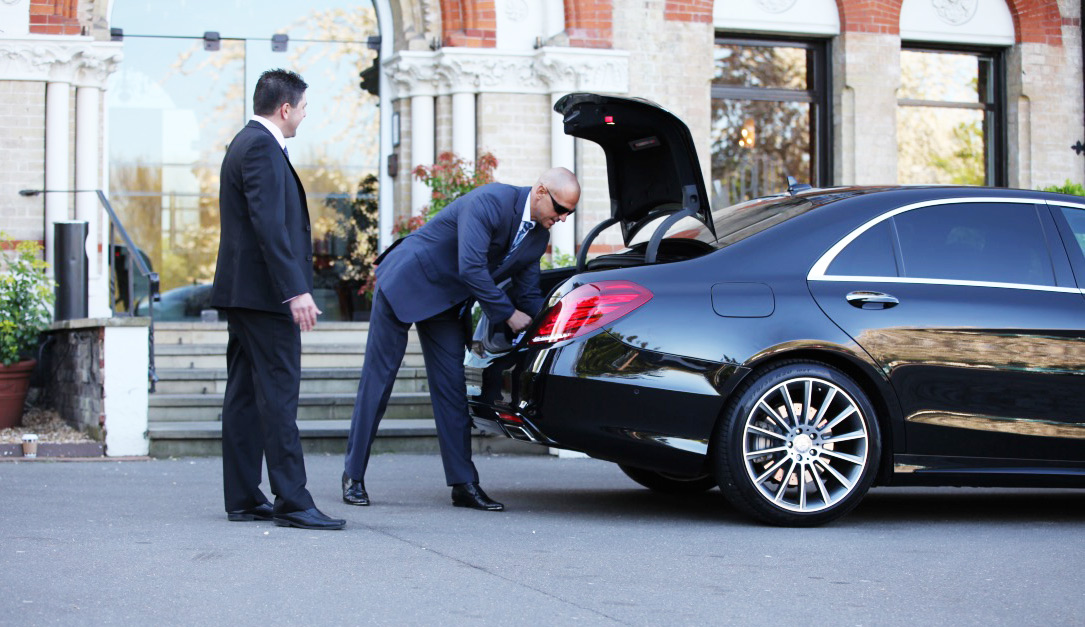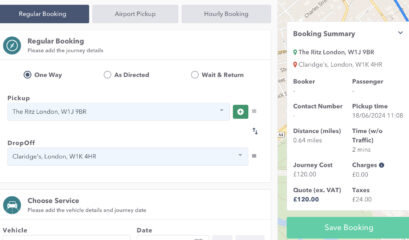How to become a London Chauffeur
Updated June 2023
The procedure for becoming a licensed private hire or chauffeur driver in London is governed by the Public Carriage Office (PCO). The PCO are controlled by Transport for London (TfL). The primary role of TfL is to implement the Mayor of London’s Transport Strategy and manage transport services across the Capital. The PCO are part of the Surface Transport section within TfL.
In 1998 the PCO expanded its role to include the licensing of drivers, vehicles and Private Hire Operators by introducing the Private Hire Vehicles (London) Act 1998.
Drivers are not restricted as to where in London they can work, as long as they only undertake bookings made through a licensed operator. In order to operate as a driver, you will need to obtain a PCO private hire driver’s licence.
TFL are legally required to issue a licence to anyone who meets their criteria. Before you apply, they strongly recommend that you consider the large number of existing licensed private hire drivers in London, and carefully research whether this is the right path for you.
Private Hire Driver’s licence
To become a PCO licensed chauffeur, a candidate must obtain a private hire driver’s licence. The first step towards obtaining a private hire driver’s licence is to register and apply online or request a private hire vehicle driver application pack.
Private hire driver’s licence requirements:
In order to be licensed, you will need to meet the following criteria:
- You must be at least 21 years of age (at the time of applying) and there is no upper age limit, as long as you meet the other licensing requirements.
- You must hold a full DVLA driving licence, Northern Ireland, or other EEA state driving licence (at least three years old).
- You must have the right to live and work in the UK.
- You must be of good character. To establish this you will be required to undertake an ‘enhanced’ criminal records check from DBS through TfL’s authorised service provider.
- You must be medically fit which means meeting the DVLA Group 2 standards. In most cases, this will mean that you will have to undergo a medical examination with someone who has access to your full medical history.
- You will need to complete a tax check with HMRC.
- You will need to undertake a topographical skills assessment at one of the TfL driver assessment centres.
- You will need to pass two separate assessments: a speaking and listening assessment and a Safety, Equality and Regulatory Understanding (SERU) assessment which is used to determine your reading and writing skills.
Character requirements or driving and criminal records checks
TFL say that ‘You must be of good character’. To show this you will be required to undertake an ‘enhanced’ criminal records check from the Disclosure and Barring Service (DBS) through their authorised service provider
The (DBS) has an online subscription service that enables you to keep your DBS certificates up to date.
English Language Requirement and SERU Assessment
Two separate assessments are used to determine whether an applicant meets the English Language Requirement.
The Safety, Equality and Regulatory Understanding (SERU) assessment will be used to determine an applicant’s ability to read and write in English to an appropriate level as well as to determine their understanding of safety, equality and regulatory matters.
A speaking and listening assessment will also be required, this will be undertaken by a secure video or telephone link within TfL premises.
Medical Fitness
A higher standard of medical fitness, called Group 2 medical Standards is required for a private hire licence. The standards are based upon DVLA Group 2, and are similar to those required for drivers of large goods vehicles, buses and coaches. You will be required to prove your medical fitness by undergoing a medical examination with your GP. Understandably certain conditions such as poor eyesight could result in an application being refused, and the PCO advice that you may wish to consult your GP before you apply.
Topographical skills assessment
Private hire drivers do not need to pass “The Knowledge” like London’s Taxi drivers but the ability to demonstrate a range of route finding skills such as map reading and route selection are now being implemented since April 2006, and the PCO have appointed a number of topographical testing centres for this purpose.
The range of topographical skills to be demonstrated are:
- map reading ability – how to use a map, index and grid reference
- route selection (local) – ability to identify and plan a route or routes (within a local area of London chosen by the applicant)
- route selection (intermediate) – ability to identify and plan a route (or routes) beyond their local area but within London
- route selection (long distance) – ability to identify and plan a route (or routes) to points outside London
- general topography – awareness of general geography of London, major arterial roads and locations beyond London (e.g. airports, towns, cities etc.)
A licence will not be granted without proof of topographical skills.
However, applicants may be exempt if:
- Previously licensed PHV drivers who have passed a TfL topographical skills test
- Licensed London taxi drivers – All London and Suburban
- Professional London tourists guides (eg Blue Badge Driver Guide)
On 1 February 2020 the exemption (previously given to applicants with a relevant vocational qualification) was removed. Please see TPH Notice 06-19 for more info.
HMRC Tax Check
You will need to complete a tax check with HMRC (using your GOV.UK Government Gateway ID and password). You must then obtain a unique 9-character tax check code which confirms your registration to pay tax. The tax check code will then need to be provided to TfL as part of your application to renew your licence.
Photograph
You will also need to provide a photograph of yourself. See TFL’s “Photo guidance” about the type of photograph they will accept.
Working Abroad
If you have lived in a country other than the UK for periods of three months or more, you will need to download and fill in the “Living and working abroad” form and submit it with your application.
How to Apply
If you wish to apply, and you can meet all the criteria, you can start your application by registering online.
Alternatively, please email tph.enquiries@tfl.gov.uk to request an application pack.
After providing some personal details, so TFL can create an account for you, you can complete your online application or request an application pack.
How much will my application cost?
The table below highlights the typical cost of an application. However, some costs may vary.
- DBS disclosure application £52 (online) £54 (paper)
- *Licence application fee £124
- Grant of licence fee £186
- Post Office® Check and Send £7.15
- Speaking and listening assessment (if applicable) £36
- Topographical assessment (if applicable) £36
- Medical Fee (set by your GP)
Example total: £477 (excluding the cost of the medical)
*The application fee is non-refundable
After you obtain your licence
Once you have successfully obtained a PCO driver’s licence you can then contact PCO licensed private hire operators for work. You would then either need to provide your own PCO registered vehicle or use one from the operator’s car fleet. This would largely depend on your own circumstances and preferences. Many drivers would prefer to buy and licence their own vehicle, as this gives them greater flexibility and a greater potential but you may prefer to use a fleet vehicle before you commit to purchasing your own car.
External Resources
Becoming an iChauffeur driver


We always search for that ‘special something’ when we hire a chauffeur. In our experience it involves having the kind of personality that people simply enjoy being around. A kind and humble temperament and a professional attitude are qualities we value. Oh, and the suits! Beautiful suits. Dark shades of cloth which fit well with polished dark shoes, shirt and tie are a prerequisite. We have learned that our clients appreciate a chauffeurs unique character, which is why we do not have a company uniform or tie.
In addition to holding a valid and current PCO licence, iChauffeur require that you demonstrate and possess the following criteria and suitable vehicle:
- A Transport for London licensed vehicle (usually under three years old)
- If required, a copy of the MOT
- A copy of the vehicle insurance
- 2 Character References
- 3 years chauffeur experience
- A smart suit, dark shoes, shirt and tie.
- You will be asked to sign a confidentiality agreement – what is said in the car, stays in the car!
- A calm and professional attitude
- You will be asked to take our Chairman on a dummy chauffeur run to demonstrate your driving
Other factors we look for in a chauffeur
- Discretion and the ability to maintain a client’s privacy at all times
- The ability to speak a foreign language
- The ability to be considerate, kind, polite and diplomatic
- Punctuality
- Some First aid knowledge
- Customer service or hospitality experience
- Security awareness and driving awareness skills
- The ability to be flexible and accommodating
- Strong geographical knowledge
iChauffeur Recruitment Process
Our chauffeur recruitment process is a 3 stage process. We start with a 20 minute telephone interview. If we believe the chauffeur has the potential to join the iChauffeur family we invite them to the office for an interview which usually lasts about 60 minutes.
The interview tests topographical knowledge, chauffeur-driven driving tests, chauffeur étiquette and ‘chemistry’ – it is just as important for us that we are the right company for them too. The chauffeur then has to take our Head of Operations for a 30 minute drive – almost like a driving test but for chauffeurs. Additionally we run a regular mystery shopper programme for all new recruits. Within our team of chauffeurs we have many who have additional qualifications such as close protection and advanced driving.
Vehicles


At iChauffeur our business model requires that our chauffeurs own their own vehicles. Take a look at our fleet below:
- Mercedes-Benz E-Class
- Mercedes-Benz S-Class
- Mercedes-Benz V-Class & EQV
- Range Rover Vogue Autobiography
- Rolls-Royce Phantom
- Bentley Mulsanne
What can a chauffeur earn?
Like any profession, the difference between the top and bottom earning players can be huge. A first-class chauffeur can make up to £200,000 per year with the right clients or company. However, the hours can be long with some chauffeurs working 12-16 hours a day for short periods of time. Weekends will nearly always be affected for the busy chauffeur with clients going to various social events.
There is a career path to suit everyone. So if your dream is to become a chauffeur, and you feel you have the right intention and drive, start to gain some experience on the minicab circuit first and work towards chauffeuring for a private families, businesses or chauffeur companies.
Please visit our partner page if you feel that you possess the qualities we are searching for and become an iChauffeur chauffeur.
Learn more
Interested in becoming a chauffeur? Read what a week in the life of a chauffeur is like and discover what makes a great chauffeur? and how to drive like a chauffeur.







